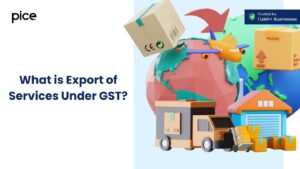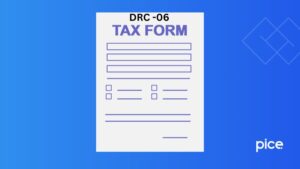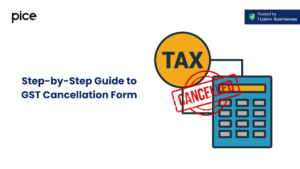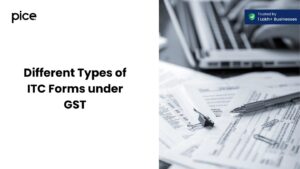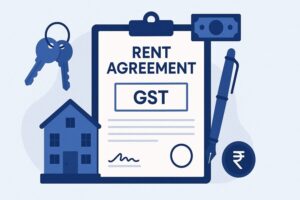How To Get A Business Loan Without Income Tax Returns?
- 26 Aug 24
- 12 mins

How To Get A Business Loan Without Income Tax Returns?
- Business Loan Eligibility Without ITR
- Steps to Avail Business Loans Without ITR
- Interest Rates and Repayment Options for Business Loans Without ITR
- Best Avenues to Avail Your Business Loan Without ITR
- Benefits of Availing Business Loan Without ITR
- Disadvantages of Availing Business Loan Without ITR
- Alternative Options for Business Loans
- Government Subsidy Loans for Businesses
- The Bottom Line
Key Takeaways
- Business loans can be obtained without an Income Tax Return (ITR), although this typically involves meeting specific eligibility criteria and providing various documents.
- To apply for a business loan without ITR, ensure you are an experienced business owner, aged between 18 and 65, with a credit score above 750.
- Necessary documents for a business loan application without ITR include identity proof, address proof, bank statements, company incorporation certificate, and more.
- Maintaining a good credit score, ideally above 750, significantly increases your chances of securing a business loan without ITR and at favorable interest rates.
- Various alternative loan options exist, such as personal loans, term loans, microloans, equipment financing, and government subsidy loans, which can be explored if traditional business loans are unattainable.
If you are an entrepreneur seeking extra funds to support your business, business loans can be a lifesaver. They cover various expenses that go behind buying stock, getting new equipment or handling daily costs. However, securing one usually means providing documents, including Income Tax Return (ITR) for the past two years.
You might be wondering whether it is possible to get a business loan without ITR and the answer is yes. While ITR documentation is often required for loan applications, there are ways to secure one without it. Keep reading to learn in detail on how to avail this loan.
Business Loan Eligibility Without ITR
To apply for a business loan without ITR, you must know its eligibility criteria and the necessary documents required to apply for one. Scroll below to learn about these requirements.
Eligibility Criteria
Before learning how to get a business loan without ITR, you must go through the eligibility criteria mentioned below to check whether you can apply for the same or not:
- Any experienced business owners (manufacturers, merchants, traders, etc.), organisations (NGOs, co-operative societies, Limited Liability Partnerships (LLPs), etc.), first-time business owners or self-employed individuals can apply for this loan.
- You must be at least 18 years old while applying for a business loan and a maximum of 65 years old at the time of loan maturity.
- Your credit score should be more than 750.
- Usually, collaterals are not required for business loans till a specific point. Nevertheless, to avail loans like a letter of credit, bill discounting or loan against property, the lender may ask you to submit collateral.
Documents Required
If you want to apply for business loan without ITR, here is a list of some essential documents you need to provide to avail it:
- Filled out loan application form with recent passport sized-photographs
- Identity proof (passport, driving licence, voter ID card)
- Address proof (rent agreement, electricity bills)
- Company Incorporation Certificate
- Proof of Income with the last 12 months' bank statement
- Continuity plan of business
- 6 months of current account statement
- Memorandum of Association (MoA) or Partnership Deed
- PAN cards for partnerships, individuals, or companies, as applicable
- Shops and establishment certificates
Importance of Credit Scores in Availing Loans at Low-Interest Rate
A credit score showcases an individual's creditworthiness, including repayment patterns, borrowing habits, spending limits and more. Representing a good credit score gives you an advantage when applying for a business loan without ITR. It depicts your trustworthiness and responsible borrower behaviour. A credit score of above 750 and close to 900 is considered good by various financial institutions. Thus, if your credit score lies in this range, there is a high chance of loan approval.
💡If you want to pay your business expenses with Credit Card, then download Pice Business Payment App. Paying all your business expenses with Credit Card and subsequently paying the amount in due time helps improve the Credit score.
Steps to Avail Business Loans Without ITR
Here is a step-by-step guide on the process of getting a business loan without ITR you must follow with due diligence.
Step 1: Research different banks or financial institutions to find the best interest rates and terms for your needs.
Step 2: Determine if you are eligible for a business loan by visiting a nearby branch or checking the official website.
Step 3: Select the loan tenure that suits your financial situation.
Step 4: Gather all the necessary documents you will need for the loan application.
Step 5: Complete the business loan application form and submit all required documents.
Interest Rates and Repayment Options for Business Loans Without ITR
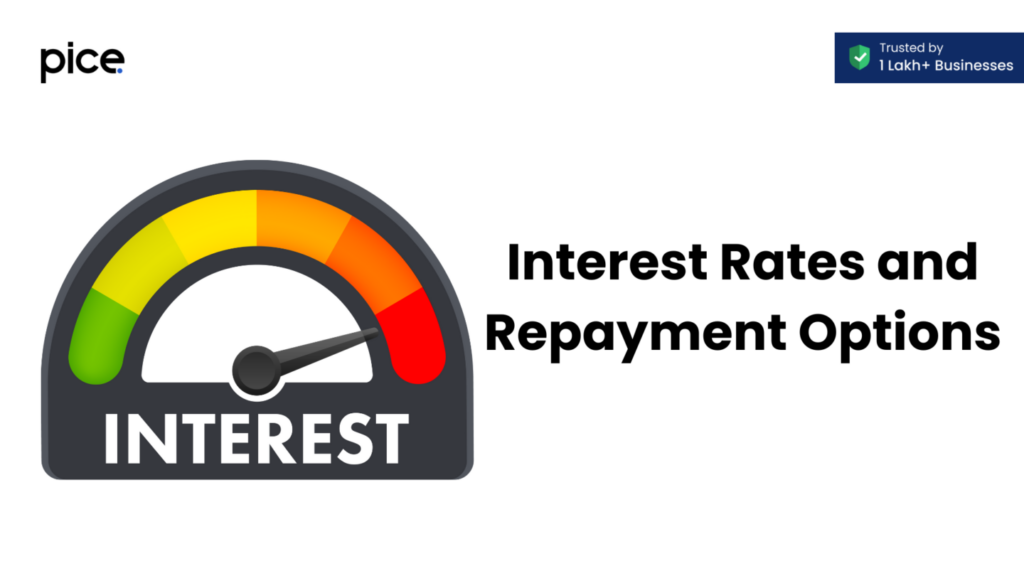
Here are the details for business loans available without requiring income tax returns:
| Name of Financial Institution | Loan Amount | Rate of Interest | Loan Tenure |
| Tata Capital | ₹1 lakh to ₹90 lakhs | 12.5% to 26% p.a. | 12 to 60 months |
| Axis Bank | ₹50,000 to ₹50 lakhs | 11% to 25% p.a. | 6 to 60 months |
| Bajaj Finserv | ₹2 lakhs to ₹80 lakhs | 9.75% to 30% p.a. | 12 to 96 months |
| IDFC First Bank | ₹1 lakh to ₹1 crore | 14% to 25% p.a. | 12 to 60 months |
| HDFC Bank | ₹1 lakh to ₹50 lakhs (₹75 lakhs in certain locations) | 10.75% to 22.50% p.a. | 12 to 48 months |
| Lendingkart | ₹50,000 to ₹2 crores | 12% to 21% p.a. | 1 to 36 months |
Best Avenues to Avail Your Business Loan Without ITR
Here are the best avenues to avail your business loans without ITR:
- Banks
Some private and public banks offer business loans without needing to see the ITR, but these are rare. It is challenging for banks to assess an individual’s or business’s ability to repay without checking the ITR.
- NBFCs and MFIs
These loans are easier to obtain, but they come with significantly higher interest rates.
Benefits of Availing Business Loan Without ITR
Here are some of the benefits you can enjoy by availing business loan excluding ITR:
- Supports New Business:
A new business may not generate enough revenue initially to cover loan repayments. Getting a loan without needing income tax returns can provide the necessary support during this critical phase.
- Convenient Loan Process
Applying for business loans without income tax returns simplifies the process, allowing you to concentrate on business expansion without the added burden of extensive paperwork and speeding up the loan approval process.
- Opportunity for Investment
Without ITRs, you can quickly secure a loan and invest in essential areas such as hiring employees, purchasing machinery or building a new office.
- Fulfilment of Capital Requirements
By obtaining a business loan exclusive of ITR, you can meet your capital needs without straining your finances, ensuring smooth business operations and growth.w
Disadvantages of Availing Business Loan Without ITR
The following are some of the disadvantages of availing a business loan without ITR:
- Higher Interest Rates
Lenders consider loan applicants without ITR as higher-risk borrowers. To cover this risk, they usually charge much higher interest rates. This can result in significantly higher borrowing costs over time.
- Shorter Loan Terms
Business loans without ITR often have shorter repayment periods. This results in higher monthly payments, which can put a strain on your business's cash flow and financial stability.
- Limited Loan Amount
Without income tax returns, lenders might offer a smaller loan amount. This can be a major obstacle for businesses needing substantial funds to expand or undertake large projects.
Alternative Options for Business Loans
The following are the different alternative options for business loans:
- Personal Loans
Self-employed individuals with no Income Tax Returns can opt for personal loans instead. If financial institutions deny business loans due to a lack of experience or revenue, personal loans can provide the needed funds. Personal loans typically have fewer eligibility requirements and are easier to obtain than business loans.
- Term Loan
These short-term loans meet various business financial needs. Offered by banks and credit unions, term loans require regular repayments over a set period. They are useful for businesses that do not qualify for long-term credit.
- Micro Loans
Microloans are ideal for small and micro businesses without access to traditional lenders, especially in rural areas. This alternative of small business loans without ITR is designed for low-capital businesses, helping them start new ventures, pay wages, maintain cash flow and consolidate debt.
- Equipment Financing
Businesses can purchase equipment through equipment loans or leases. Equipment loans suit those who can make large down payments to buy expensive equipment.
- Line of Credit
It allows businesses to access funds up to a certain limit on demand. Available as secured or unsecured, it works like a credit card where the amount can be borrowed again once repaid.
- Merchant Cash Advances
Secured by future sales, lenders provide a lump sum which the borrower repays from future sales. This option is popular with retail stores, medical offices and restaurants.
- Invoice Financing
Companies use invoices as collateral to secure loans. The loan amount depends on the invoice value, making it ideal for businesses that do not need immediate cash. Unlike factoring, the lender does not buy the invoices but offers a loan against them.
- Invoice Factoring
Businesses can sell outstanding invoices to factoring companies, receiving up to 90% of the invoice value upfront. The remaining amount is given after deducting the factoring fee once the invoices are paid.
Government Subsidy Loans for Businesses
Exploring government schemes can significantly improve your chances of securing a business loan without any ITR documentation. In this case, you can consider applying for the following government initiatives:
- Stand-Up India
Launched by the Government of India, this loan scheme supports businesses owned by women and those belonging to the ST or SC category. It offers loans ranging from ₹10 lakh to ₹1 crore for enterprises involved in manufacturing, trading, service, or agro-allied activities.
A Stand-Up India loan covers around 85% of the total proposed business expenses, leaving the applicant responsible for the remaining portion. To secure the loan, the Credit Guarantee Fund Scheme (CGFS) must guarantee it or collateral must be provided. The repayment period spans 7 years with a maximum moratorium of 18 months.
- SIDBI Make in India Loan for Enterprises (SMILE)
Managed by the Small Industries Development Bank of India (SIDBI), this scheme provides soft loans and term loans to help businesses maintain their debt-equity ratio. It aims to establish micro, small or medium enterprises (MSMEs) in the manufacturing and services sectors.
The scheme offers loans up to ₹10 lakh for equipment finance and up to ₹25 lakh for other developments. Some of the important aspects of this loan include attractive interest rates, fast approval of the loan and an extended repayment period of up to 10 years.
- Pradhan Mantri Mudra Yojana (PMMY)
In this scheme, the Micro Units Development and Refinance Agency (MUDRA) provides collateral-free loans to small and micro enterprises that are not engaged in farming, as well as to non-corporate businesses.
MUDRA loan offers several benefits, including no prepayment charges, flexible repayment options ranging from 12 months to 5 years and affordable interest rates for women. The maximum loan amount available under the PMMY is ₹10 lakh. To qualify, applicants must be between 18 and 65 years old and have a solid repayment history with no previous loan defaults.
- Credit Guarantee Scheme (CGS)
This scheme aims to boost credit delivery for the MSME sector. It offers term loans and working capital loans up to ₹200 lakh per borrower. Eligible lenders include public sector banks, private sector banks, select foreign banks, Regional Rural Banks (RRBs) and the State Bank of India along with its associate banks.
- National Small Industries Corporation Subsidy (NSIC Subsidy)
Designed to assist MSMEs in acquiring raw materials and advertising, this scheme provides several benefits. These include cost-free tenders, land and building financing and no security deposit requirement. Small Scale Industries (SSIs) can access tenders at no cost and apply for loans without a security deposit. The scheme finances land and building projects up to ₹25 lakh.
The Bottom Line
Securing a business loan without ITR is indeed possible with the right approach. By understanding the eligibility criteria, gathering the necessary documents and exploring alternative options, you can improve your chances of approval. Remember to maintain a strong credit score to strengthen your business loan application. With perseverance and strategic planning, you can successfully obtain the funding needed to fuel your business growth and achieve your entrepreneurial dreams.









